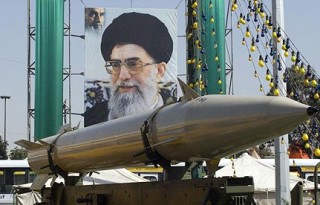UN council condemns attacks on Syria civilians, barrel bombs
By REUTERS/06/06/2015
UNITED NATIONS – The United Nations Security Council on Friday condemned continued indiscriminate attacks on civilians in Syria, including aerial bombardment and barrel bombings that Western powers say only the government is capable of carrying out. Last week the UN humanitarian chief painted a harrowing portrait of savagery in Syria’s civil war, now in its fifth year, and urged the Security Council to take collective action to put an end to the carnage.
The war has killed more than 220,000 people. Of the country’s roughly 23 million people, some 12.2 million are in need of humanitarian aid, including 5 million children. “The members of the Security Council expressed their deep concern at the continued high level of violence in Syria and condemned all violence directed against civilians and civilian infrastructure, including medical facilities,” the council said in a statement.
“They expressed outrage at all attacks against civilians, as well as indiscriminate attacks, including those involving shelling and aerial bombardment, such as the use of barrel bombs, which have reportedly been extensively used in recent days in Aleppo,” it said.
Western officials blame aerial and barrel bomb attacks on the government. Several Western council members noted that the unanimously adopted statement had the backing of Russia, which has strongly supported the government of President Bashar al-Assad. Russia, backed by China, has vetoed four Security Council resolutions on Syria, three of them threatening the government with sanctions and another calling for referring the war to the International Criminal Court in The Hague for possible war crimes indictments.
The United States wants the council to approve a UN investigation to determine who is to blame for chemicals weapons attacks in Syria. Success of this initiative will ultimately depend on Russia, which blames rebels for chemical attacks. Rebels and Western powers blame Assad’s forces.
The council also “condemned increased terrorist attacks resulting in numerous casualties and destruction carried out by Islamic State, al Nusra Front and other individuals, groups, undertakings and entities associated with al Qaeda.”
The Security Council also voiced support for UN Syria peace mediator Staffan de Mistura, who has started a new attempt to broker negotiations between rebel groups and the government. Western and Arab officials say they have little hope that a breakthrough is imminent.
Last month, Syria’s main political opposition group complained about de Mistura’s decision to include Iran, which, like Russia, has been a strong supporter of Assad.
Iran rejects limited international access to military sites
Reuters/Ynetnews
Published: 06.05.15 / Israel News
Deputy military chief declares Islamic Republic finds access of any kind ‘unacceptable’, reaffirming tough stance taken by Supreme Leader Ayatollah Ali Khameini. Iran will not allow even restricted outside access to its military sites under any nuclear accord with six powers, the deputy chief of its armed forces said on Friday, reaffirming Tehran’s tough stance on the issue as the deadline for a deal looms.
Access for UN nuclear inspectors to Iranian military sites and the pace and timing of sanctions relief for Tehran are among several major disputes that Iran and the powers need to resolve before the self-imposed June 30 deadline for a final deal.”Any kind of inspection of Iran’s military sites, including managed and restricted access, is unacceptable,” Brigader General Massoud Jazayeri was quoted by Tasnim news agency as saying.
Some senior Iranian negotiators had raised the possibility of some limited access, with Tehran in control of the process.”Controlled and managed access (to the military sites) does not mean inspection,” Iran’s senior nuclear negotiator Abbas Araqchi said after arriving in Vienna on Thursday for another round of talks with officials from the six powers.
“We are trying to set some rules for managed access to non-nuclear sites,” Iran’s official IRNA news agency quoted him as saying.
But Jazayeri’s comments reinforced the hard line long taken on the issue by both Iran’s Supreme Leader Ayatollah Ali Khamenei, who has the last say on all state matters, and by top military commanders.
“We will not allow any visits to military sites, whether they be limited, controlled, unfree or in any other form,” Jazayeri said. “Let’s avoid playing with words.”Western powers have long suspected Iran of planning to build a nuclear bomb. Tehran denies any such intention and says its nuclear program has purely civilian aims.
The six powers — the United States, France, Britain, Germany, Russia and China — want the International Atomic Energy Agency (IAEA) to visit military sites to check on past activities that could indicate attempts to build an atomic bomb.France has specifically warned against the blocking of a final nuclear settlement over the issue of granting access for inspectors to all installations, including military sites.
Iran’s Foreign Minister Mohammad Javad Zarif has called on the six powers to refrain from making “excessive demands” on his country.

















